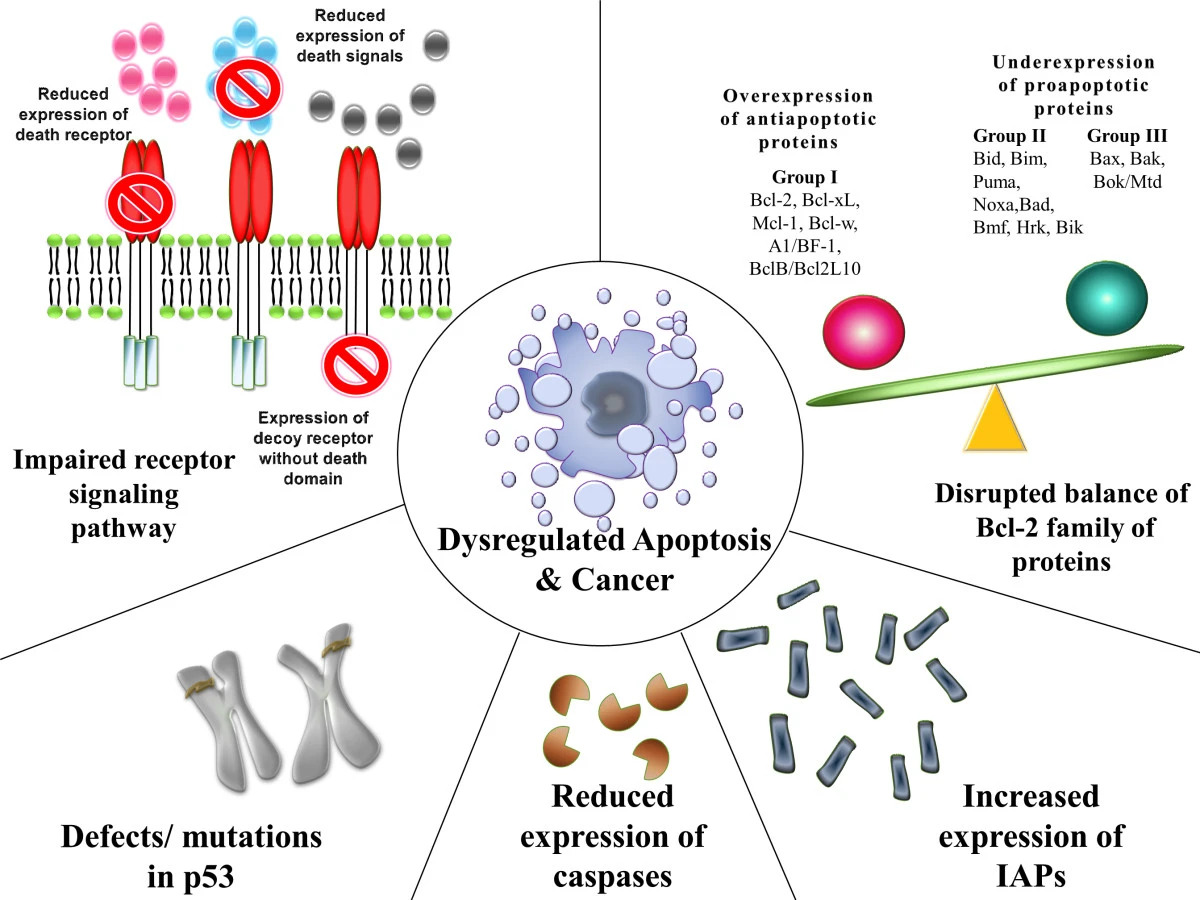Playlist
Show Playlist
Hide Playlist
Regulation of Apoptosis and Clonality– Carcinogenesis
-
Slides Carcinogenesis Basic Principles.pdf
-
Download Lecture Overview
00:01 Another major component of carcinogenesis would be alteration in genes that then evade apoptosis. Remember please that in cancer it does'nt want apoptosis. So therefore, let me give you an example as to how it does this exactly. 00:17 Our topic here brings us to BCL-2. Understand that on your boards, you will be quite clear and you will not be able to confuse BCL-2 with BCR. One has nothing to do with the other. When I say BCR-ABL you're thinking about the fusion protein 9 and 22 dealing with tyrosine kinase and so forth. It's completely a different discussion. Here however BCL-2 has everything to do with a translocation called t(14;18). That chromosome 14 means what to you? Immunoglobulin heavy chain. And follicular lymphoma what does that mean to you. Well this is a lymphoma. If you take a look at histologic pictures would you find Reed-Sternberg cells, yes or no? No. So if you don't find Reed-Sternberg cell what kind of lymphoma do we have? A Non-Hodgkin's lymphoma. One of the many types that we shall take a look at but quite common a Non-Hodgkin's lymphoma, follicular. So what does BCL-2 do for follicular lymphoma? It protects the cell, the cancer cell from apoptosis. In other words, it's an anti-apoptotic factor. You hear what I just said? Language is important. Not pro-apoptotic but anti-apoptotic. In this box here with clonal expansion, just a few words here about how cancers like to behave. Clonality. Most of your cancers will be monoclonal activity. What does that mean to you? Well let's take a look. Sex chromosomes come together and you end up forming a female zygote. Eventually blastocyst. 01:59 Inactivation of one X-chromosome. Now with neoplasia what ends up happening is the fact that it only chooses one type here to expand upon. Exactly why, well we don't know. Majority of your cancers in fact will be monoclonal of type or monoclonality. 02:19 And in laboratory studies in oncology there will be certain enzymes that oncologist use or researchers will use to then measure the monoclonality and these are then called your what's known as your isoenzymes. The polyclonal as the name implies, will be one in which it has number of your chromosomes. But more common though, monoclonality. You have heard of monoclonal gammopathy of undetermined significance. You have heard of multiple myeloma. All those are monoclonal type of cancers.
About the Lecture
The lecture Regulation of Apoptosis and Clonality– Carcinogenesis by Carlo Raj, MD is from the course Cellular Pathology: Basic Principles with Carlo Raj.
Included Quiz Questions
Which of the following is associated with the anti-apoptotic molecule BCL-2?
- Follicular lymphoma t(14:18)
- Hodgkin lymphoma t(14:18)
- Follicular lymphoma t(15:17)
- CML t(15:17)
- ALL t(14:18)
Which of the following statements about monoclonality is TRUE?
- It implies that all cells have the same genetic expression.
- It implies that two isoenzymes are expressed.
- It means that chromosomal abnormalities from both parents will be expressed.
- It means that proliferation takes place in one area of the body.
- It implies that metastasis is not possible.
Customer reviews
5,0 of 5 stars
| 5 Stars |
|
5 |
| 4 Stars |
|
0 |
| 3 Stars |
|
0 |
| 2 Stars |
|
0 |
| 1 Star |
|
0 |




